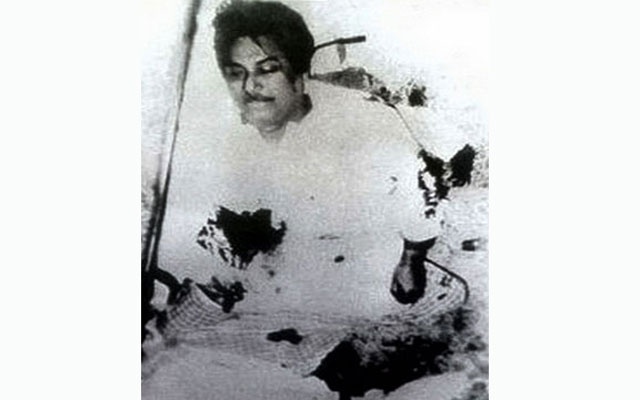On 15 August 1975, a group of junior army officers invaded the presidential residence with tanks and killed Mujib, his family and personal staff. Only his daughters Sheikh Hasina and Sheikh Rehana, who were visiting West Germany at the time, escaped. They were banned from returning to Bangladesh. The coup was planned by disgruntled Awami League colleagues and military officers, which included Mujib’s colleague and former confidante Khondaker Mostaq Ahmad, who became his immediate successor. There was intense speculation in the media accusing the U.S. Central Intelligence Agency of having instigated the plot. Lawrence Lifschultz has alleged that the CIA was involved in the coup and assassination, basing his assumption on statements by the then-U.S. ambassador in Dhaka, Eugene Booster.
Mujib’s death plunged the nation into a political turmoil. The coup leaders were soon overthrown and a series of counter-coups and political assassinations paralyzed the country. Order was largely restored after a coup in 1976 that gave control to the army chief Ziaur Rahman. Declaring himself President in 1978, Ziaur Rahman signed the Indemnity Ordinance, giving immunity from prosecution to the men who plotted Mujib’s assassination and overthrow.
Sheikh Hasina had returned and herself became Prime Minister. She overturned the immunity decree and in 1998 a dozen army officers, including Abdul Majed, were sentenced to death. The Supreme Court of Bangladesh upheld the verdict and five of them were hanged. On 12 April 2020, the former army officer, Abdul Majed, was found in hiding and also executed for the assassination of Mujibur Rahman.

